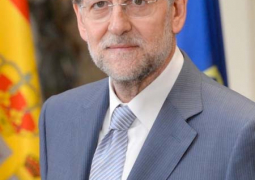The president announced plans for this meeting last year in Cape Town during a speech that outlined the kind of partnership he hopes to establish with the continent. Various civil society groups are also planning events to coincide with the presence of so many visitors from the African continent.
According to government officials, the summit will be a different kind of gathering: less speeches and more discussions and dialogue between the administration and the presiding heads of state of those nations with which the U.S. has relations.
The interchange with these leaders will take place around a “shared agenda”: A White House press release on the summit indicates that President Obama “looks forward to welcoming leaders from across the African continent ... to further strengthen ties with one of the world’s most dynamic and fastest-growing regions.
The summit will build on the progress made since the President’s trip to Africa last summer, advance the Administration’s focus on trade and investment in Africa, and highlight America’s commitment to Africa’s security, its democratic development, and its people.”
This summit is one of President Obama’s most important initiatives towards Africa and is a further step in the development of his foreign policy stance as outlined in the June 2012 policy statement U.S. Strategy Towards Sub-Saharan Africa.
What does the U.S. hope to achieve from this summit? First, the meeting is a chance to help educate U.S. residents about Africa’s people as well as about the depth of the U.S. involvement in Africa and its security and economic interests there.
Secondly, it will be an opportunity to showcase especially the U.S. government’s plans for fostering the development of electrical energy through investment by private companies like Symbion Energy.
The U.S. would like to promote Africa as a strategic partner and not as a continent in crisis. The basis of this partnership, from Washington’s point of view, should be built on the public-private partnership model of development.
Indeed, while civil society groups have been told they will not be part of the official summit, representatives from trade and investment organizations have been invited to attend.
What about the involvement of civil society organizations in the summit? In April, four civil society organizations wrote President Obama a letter welcoming his decision to call the meeting. They also made a direct appeal to allow official space for African civil society activists. Unfortunately, while there is talk of a civil society forum in conjunction with the Summit, so far no official space has been provided.
However, some departments in the government have expressed openness to listen to input from civil society. The U.S. Agency for International Development (USAID), for example, has asked for recommendations about what to talk about with African leaders. They are looking for very specific suggestions on what to do, e.g. that each U.S. embassy in Africa meet with civil society groups in Africa prior to the Summit.
Organizers of the summit claim that they are open to receiving input from civil society on issues such as land grabbing in Africa and problems of corruption and lack of good governance.
Civil society representatives from Africa say they would like to see both the opportunity to participate in the meetings of the summit and an agenda that includes issues like human rights and not just security and economic concerns.
Another key concern of African civil society groups is how the U.S. has been critical of the policies of many African countries only to have these criticisms swept under the rug before the summit takes place.
Guest commentary obtained online
“International cooperation, multilateralism is indispensable”.
Hans Blix


